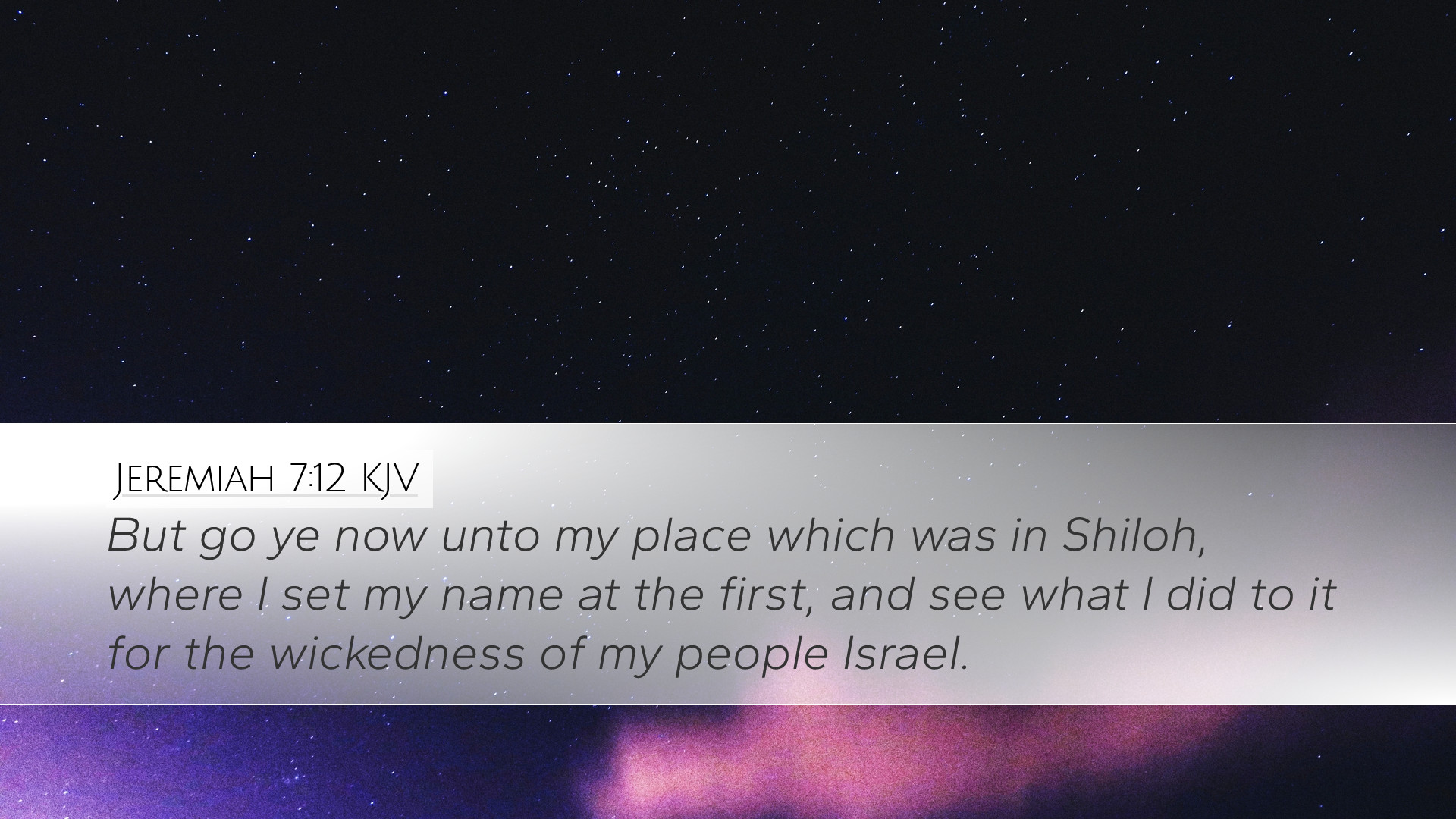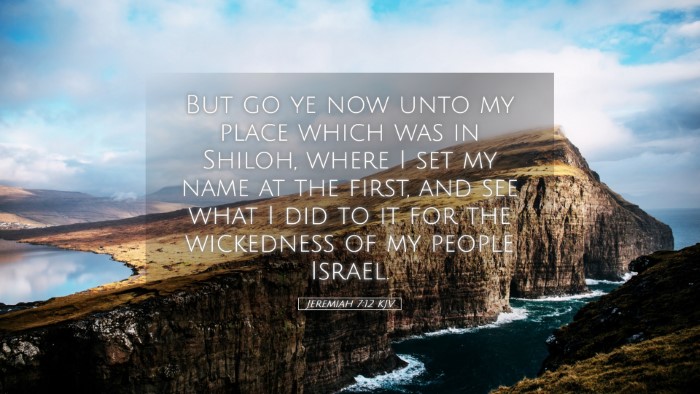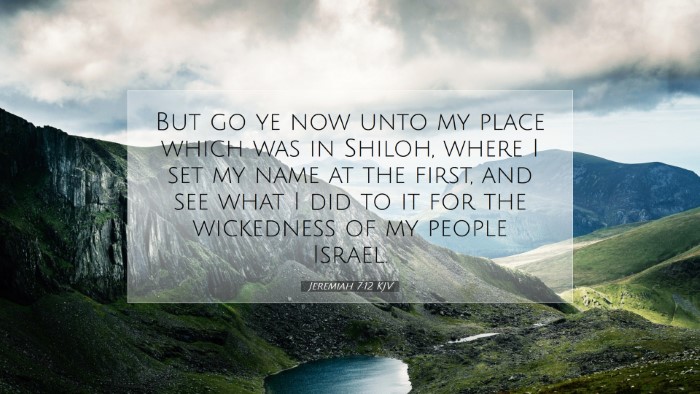Commentary on Jeremiah 7:12
Bible Verse: Jeremiah 7:12 - "But go ye now unto my place which was in Shiloh, where I set my name at the first, and see what I did to it for the wickedness of my people Israel."
Introduction
The verse is a significant part of Jeremiah's prophetic ministry as it not only reflects on the historical sanctity of Shiloh but also serves as an indictment upon the current state of Israel’s worship and behavior. The interactions between God and His people are brought into focus; they are called to reflect on their past, specifically on how God's judgment manifested in Shiloh due to their wickedness.
The Historical Context of Shiloh
Matthew Henry highlights that Shiloh was once a center of worship for the Israelites, where the tabernacle of covenant was established. It was in Shiloh that God's glory resided among His people before the temple in Jerusalem was built. The degradation of Shiloh stands as a powerful symbol for Israel’s departure from True worship; thus, when God asks them to reflect upon it, He is calling them to remember their history and the consequences of their actions.
Significance of God's Name
Albert Barnes emphasizes the phrase "where I set my name at the first." This indicates that God had designated Shiloh as a site of divine presence and authority. The loss of God's presence due to the people’s infidelity serves as a stark reminder of their covenant responsibilities. The question posed by God is not merely historical but confrontational, inviting them to observe and learn from the judgment meted out to their ancestors.
The Call to Reflect
Adam Clarke points out the importance of reflection on past events as part of spiritual growth. God’s command to consider Shiloh encompasses both remembrance and introspection. It implies that the people should see that just as God judged Shiloh, which was once favored, He could similarly judge Jerusalem and the temple should they persist in wickedness. Reflection serves as a means to avoid repeating the mistakes of history.
The Nature of Wickedness
The term "wickedness" in this context is worth exploring. Matthew Henry examines the particular ways in which the Israelites had turned away from God’s laws and engaged in idolatry and injustice. Their wickedness is not just a generic sin but a specific turning away from the covenant that had defined their identity as God’s chosen people. God’s referencing of Shiloh serves as a historical lesson about the consequences of such moral and spiritual failures.
Theological Implications
The implications of this verse reach deep into the theological understanding of the nature of God's presence among His people. Albert Barnes suggests that the warning given through Jeremiah calls into question the belief that the mere presence of the temple ensures God’s favor. The Israelites believed that their physical proximity to the temple spared them from consequences, yet God challenges this notion by highlighting Shiloh’s fate.
The Role of Prophets
Prophets play a crucial role in mediating God’s messages. Adam Clarke remarks on the prophetic duty to speak hard truths to a nation that was often resistant to accountability. Jeremiah’s mission, illustrated in this verse, signals a divine call for holiness, faithfulness, and a reconsideration of what it means to be God's people. The condemnation faced by Shiloh becomes a template for understanding God’s expectations from Israel.
Practical Applications for Today
The lessons from Jeremiah 7:12 extend beyond the historical context and into contemporary spiritual applications. Believers today are equally reminded of the need for righteousness and the realities of judgment. In exploring this verse, Matthew Henry urges current generations to recognize their own “places” of worship and the condition of their hearts before God.
- Importance of Historical Reflection: Understanding history aids in recognizing patterns in spiritual engagement.
- Accountability and Judgment: Just as God judged Shiloh, He is also sovereign over contemporary church practices.
- Righteousness Required: Faith must translate into moral action, as highlighted in the consequences faced by Shiloh.
- Role of the Church: The church must be vigilant in upholding truth and righteousness in their teachings.
Conclusion
In summary, Jeremiah 7:12 serves as a profound admonition to reflect on the weighty matters of faith and practice. Through analysis from various commentators, we see the multi-layered implications of the text addressing both historical and ongoing spiritual realities. As it called the ancient Israelites to reflect on Shiloh and to learn from the past, it similarly calls believers today to engage deeply with their faith, ensuring that their worship aligns with the holiness and righteousness that God demands.


